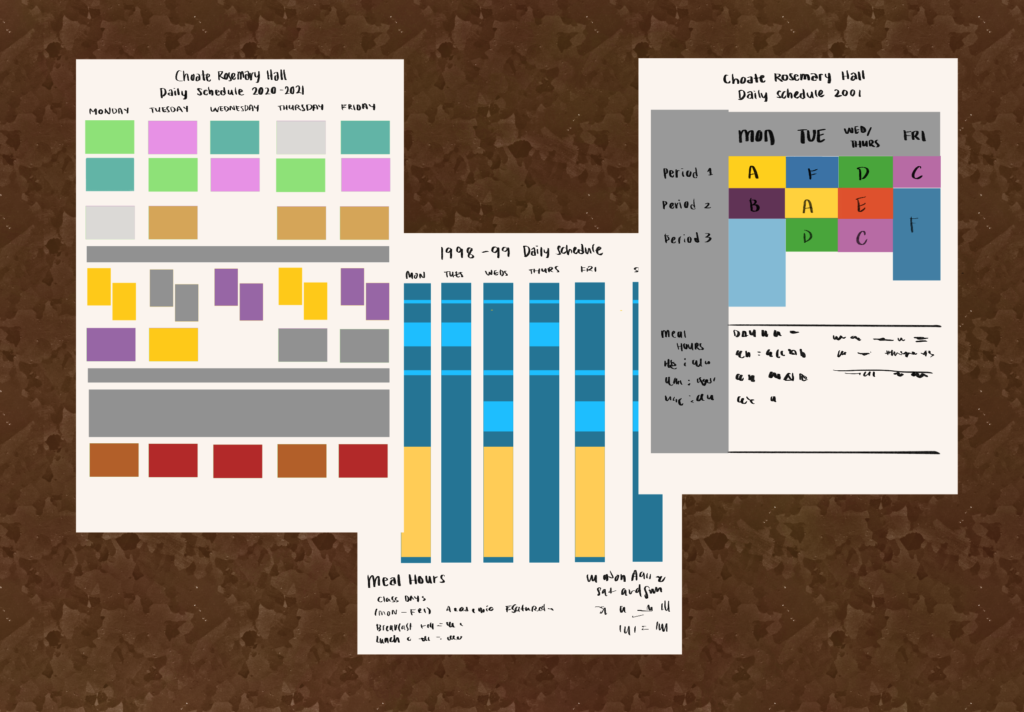Imagine this: a friend is going through a tough time. You see this happening, but you don’t know how to approach them. How can you find out what they’re feeling to help them? You don’t want to hurt them or hit a sensitive spot. What can you do?
The Assessment Team may be a solution. They are a group of fifth- and sixth-formers led by two faculty advisers — Director Associate of the Counseling Center Ms. Judith Bender and Associate Dean of College Counseling Mr. Tim Eash — who aim to help students experiencing any kind of difficulty in full confidentiality. Here’s some transparency behind the Assessment Team door.
The Assessment Team reaches out to individuals through a referral process. Referrals are generally made by anyone close to the student — a friend, teacher, or dean — who feels that they may be struggling to navigate issues like “substance use, disordered eating, relationship problems, changes in social interaction and engagement, family problems, inappropriate or rule-breaking behavior — pretty much anything that may be problematic to the student and/or the community,” said Ms. Bender.
The group gains as much context as possible about the student’s situation before contacting them. Once the group has discussed, one of the two advisers will be assigned to meet with the student. Other faculty or parents are not brought into the conversation.
“The Assessment Team supports not just the student being referred, but the person who is confidentially making the referral,” said Mr. Eash. “It’s a chance to actually get someone help without the fear of punishment being involved.” Following the initial meeting, if an urgent concern isn’t identified, Ms. Bender will give the student her contact information. The student has the choice to pursue additional meetings or counseling.
More broadly, the Assessment Team hopes to influence counseling as a whole at Choate. The group “is trying to help and support students both by getting them counseling help and by advocating the wants and needs of our student body to the faculty advisers,” said Tommy Barton ’22, a member of the group. The Assessment Team sparks conversations between students and faculty on sensitive topics that may often get overlooked. “We act as liaisons between students and counseling, and seek to support the student body,” said Macie Simmons ’22, an Assessment Team member.
At times, the Assessment Team has been associated with the work of other counseling services on campus, whose controversial nature has made some students more reluctant to use the Assessment Team as a resource. The group’s student members are working to remove the stigma of helping others by changing the reputation of the group on campus. They emphasize its confidentiality for those making the referrals, which differs from the traditional ways of addressing students’ concerns that directly involve adults.
Another goal the team has is to increase their accessibility to the student body. Many new students are unaware of their existence. “I haven’t heard much about the Assessment Team or anyone that has gotten into contact with them. So, I wish they were a more prevalent resource on campus,” said Grace Walters ’24, a new fourth-former.
The Assessment Team acknowledges this issue and hopes to address it by adjusting the referral process. Case Sakamoto ’23, a member, said, “I would make it even more accessible with something like a link in the portal to a form or maybe connect with other leadership groups and clubs in collaborative meetings.”
Overall, the faculty advisers believe that so far, the team is working together well. “The level of maturity and conscientiousness that people bring to our conversations really inspires me,” said Mr. Eash. “It’s a group where people are comfortable expressing their convictions, and all are respected and genuinely appreciated.”




